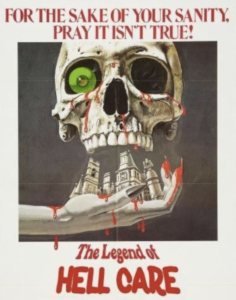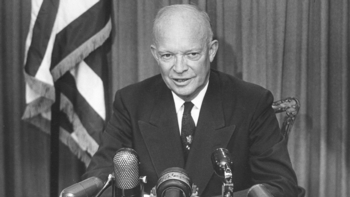Enough is a Damned ‘Nuff! Now I am Damned PISSED OFF! ~ Editor
All signs point to a massive money funnel from the Department of Veteran Affairs to private health care interests.
 President Donald Trump’s administration keeps denying that the Department of Veteran Affairs is headed toward privatization — just like it couldn’t stop denying that mass layoffs of 80,000 employees wouldn’t impact veteran care. But facts have a way of catching up.
President Donald Trump’s administration keeps denying that the Department of Veteran Affairs is headed toward privatization — just like it couldn’t stop denying that mass layoffs of 80,000 employees wouldn’t impact veteran care. But facts have a way of catching up.
After intense pressure from veterans’ groups and Congress, the administration was forced to walk back its plan — cutting 30,000 jobs instead. Already, though, the VA has lost thousands of health care staff since January — including 688 physicians and 1,882 registered nurses — while still claiming its services remain unaffected.
The budget numbers don’t lie — even if Trump and Veterans Affairs Secretary Doug Collins do.
This year, the Trump administration requested a record-breaking $441 billion VA budget for fiscal year 2026. That’s a 10 percent increase over last year and, in theory, should be good news for veterans and the people who care for them. Continue reading

 House Speaker Mike Johnson has called for “full transparency” from the Justice Department regarding the ongoing Jeffrey Epstein investigation, emphasizing the need for an open and thorough examination of the case. The position directly challenges President Donald Trump’s repeated assertions that the Epstein controversy is nothing more than a politically motivated fabrication. Johnson is now pushing back against Trump’s efforts to dismiss the matter as “the Jeffrey Epstein Hoax,” marking a notable shift from the President’s stance.
House Speaker Mike Johnson has called for “full transparency” from the Justice Department regarding the ongoing Jeffrey Epstein investigation, emphasizing the need for an open and thorough examination of the case. The position directly challenges President Donald Trump’s repeated assertions that the Epstein controversy is nothing more than a politically motivated fabrication. Johnson is now pushing back against Trump’s efforts to dismiss the matter as “the Jeffrey Epstein Hoax,” marking a notable shift from the President’s stance.  For years, it was not uncommon for everything related to Christianity, religion, and traditional values to be scorned and rejected as something whose time had come and gone. That attitude, however, seems to be slowly shifting.
For years, it was not uncommon for everything related to Christianity, religion, and traditional values to be scorned and rejected as something whose time had come and gone. That attitude, however, seems to be slowly shifting. Once again, the American police state is choosing to protect predators, not victims.
Once again, the American police state is choosing to protect predators, not victims. In the Fall of 2006, I received a most unexpected invitation to travel to Cambridge University in Great Britain and take part in a debate before a 200-year-old debating society called the Cambridge Union. The issue we were to debate – “This House believes that the United Nations is a dead loss!” There was an issue I could easily get behind.
In the Fall of 2006, I received a most unexpected invitation to travel to Cambridge University in Great Britain and take part in a debate before a 200-year-old debating society called the Cambridge Union. The issue we were to debate – “This House believes that the United Nations is a dead loss!” There was an issue I could easily get behind. She will never admit to it. But according to recently-released federal disclosures,
She will never admit to it. But according to recently-released federal disclosures,  Email users appear to be facing a never-ending barrage of scam emails. Approximately 3.4 billion phishing emails are daily worldwide.
Email users appear to be facing a never-ending barrage of scam emails. Approximately 3.4 billion phishing emails are daily worldwide.

 Economists have for months warned that tariffs would cause an inflation surge, but as of July, there’s little evidence of that in economic data, despite about $100 billion in tariffs already collected by the Treasury. Fortune asked economists to explain why. The possible reasons range from “it’s too soon” to “consumers won’t stand for it.”
Economists have for months warned that tariffs would cause an inflation surge, but as of July, there’s little evidence of that in economic data, despite about $100 billion in tariffs already collected by the Treasury. Fortune asked economists to explain why. The possible reasons range from “it’s too soon” to “consumers won’t stand for it.” A massive data leak has compromised the healthcare records of more than eight million Americans.
A massive data leak has compromised the healthcare records of more than eight million Americans. We are now struggling to emerge from the wreckage of a constitutional republic, transformed into a kleptocracy (government by thieves), collapsing into kakistocracy (government by the worst), and enforced by a police state algogracy (rule by algorithm).
We are now struggling to emerge from the wreckage of a constitutional republic, transformed into a kleptocracy (government by thieves), collapsing into kakistocracy (government by the worst), and enforced by a police state algogracy (rule by algorithm). If you remember the Disney version of “Peter Pan”, you may well remember the Island’s name, Neverland. If you were raising children in the late 80s and throughout the 90s, you may recall the commercial from ToysRus. The line from the jingle was “I don’t want to grow up, I’m a ToysRus kid.” In many ways, we’ve seen our culture promote delayed childhood.
If you remember the Disney version of “Peter Pan”, you may well remember the Island’s name, Neverland. If you were raising children in the late 80s and throughout the 90s, you may recall the commercial from ToysRus. The line from the jingle was “I don’t want to grow up, I’m a ToysRus kid.” In many ways, we’ve seen our culture promote delayed childhood. Social Security is the bedrock of the American retirement system. Although it was never intended to fully cover the expenses of retirees, many Americans unfortunately find themselves in this situation. But with an average monthly retirement payout of just $1,980.86 as of February 2025, according to the Social Security Administration, the idea of privatizing Social Security has reared its head once again.
Social Security is the bedrock of the American retirement system. Although it was never intended to fully cover the expenses of retirees, many Americans unfortunately find themselves in this situation. But with an average monthly retirement payout of just $1,980.86 as of February 2025, according to the Social Security Administration, the idea of privatizing Social Security has reared its head once again. Seventy years after President Dwight D. Eisenhower warned about the cost of a military-industrial complex, America is still stealing from its own people to fund a global empire.
Seventy years after President Dwight D. Eisenhower warned about the cost of a military-industrial complex, America is still stealing from its own people to fund a global empire.